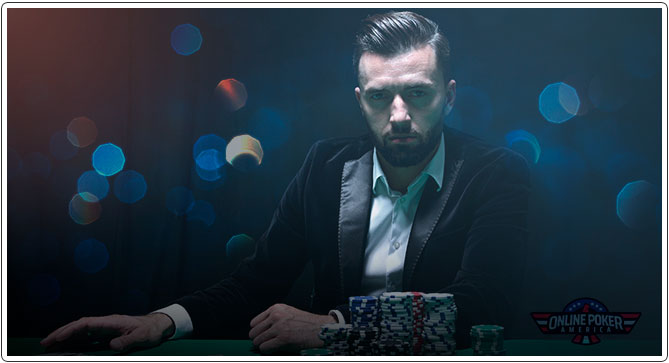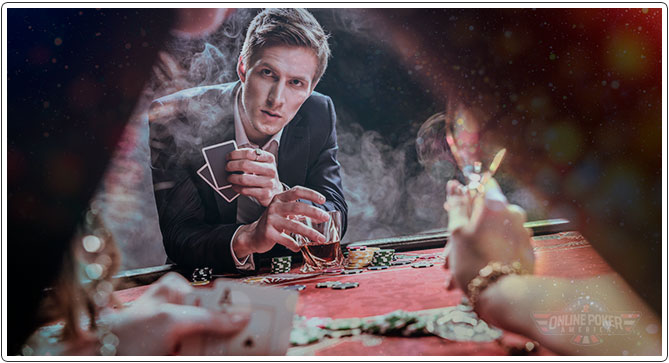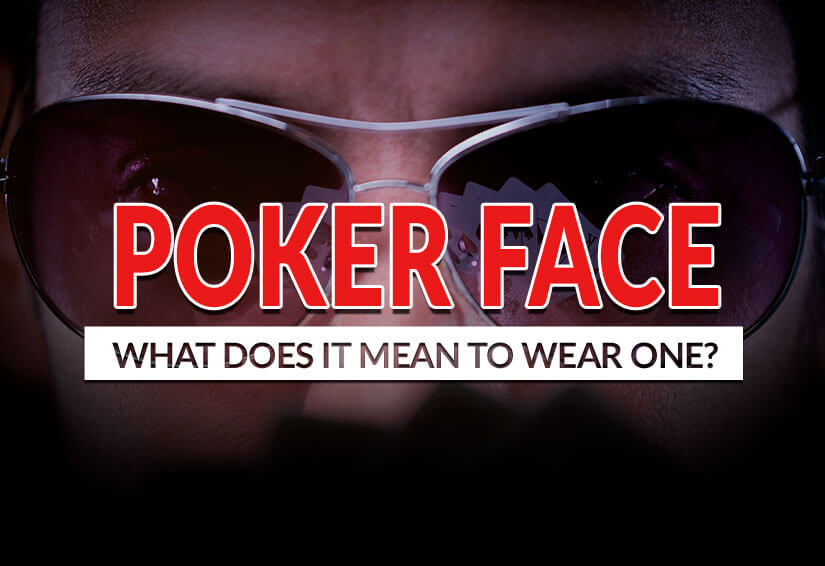Poker is all about statistics and reading your opponent correctly. Yet, while you can have a fairly good idea of what an opponent is capable of statistically, the best players seldom betray any emotion. Look at any World Series of Poker table and you will find a wall of blankness and empty visages that observe the game without so much as a twitch.
Yet, most poker players wear glasses, headphones, hoodies or caps, covering their faces completely or partially and shrouding themselves in mystery.
Does any of this secrecy help you be a better player?
The answer is yes and no. However, players who tend to win more tend to talk less and they certainly wear a poker face. But what does this mean specifically?
Poker Face, How Does It Help?
All players agree that your ability to minimize the information you give away to opponents in real poker is essential. While in an online game of poker, opponents try to read how much time it takes you to make a decision, and plan their next move based on that, and many other factors of course, in a real game of poker your poker face can be your salvation.
There are many psychological factors that come into play. For example, Maria Konnikova, a researcher and semi-professional player with $311,368 to her name, has argued that men feel too intimidated to fold to a woman, leading to some easy hands for Konnikova. With a PhD in Psychology, Konnikova is in a unique position to benefit from the small foibles of human nature and read right into the weaknesses of opponents.
But a degree and PhD are not necessary to make a great poker player. Some people are just naturals at spotting patterns and using this knowledge to their advantage. This is where poker face comes in allowing you to bluff better, cover up a weakness and generally become an enigma that opponents have to respect and often give in to.
Why Keep the Poker Face?

Overfamiliarity with a subject will often make you better in that subject. It’s the same way with people.
Knowing more about a person allows you to see how people behave in different situations, some involuntary tick perhaps that you can use to glance into the opponent’s hand and make a decision based on that.
The poker face on the other hand make matters so much simpler. You never give up any emotion, there are no involuntary ticks, no premeditated giveaway tell-tales. All that is left is for your opponents is to try and read the game. Of course, the more advanced and known you are in the poker community, the more the competition will know about you.
They will study you and come to conclusions about your character that may be beyond your own immediate understanding. But this is later, after you have mastered your own poker face. And, even then, not giving up anything would still hinder any opponent from getting a 100% read of your intentions or cards.
Is the Poker Face Overrated?
Subject to pop culture, songs and flicks, poker face is definitely no longer just part of the game of poker. Lady Gaga’s “Poker Face,” may be a catchy tune and “Rounders” is a great movie, but to evaluate the real benefits from maintaining a poker face, you ought to ask yourself, are these “tells” really helpful?
Sure, there is the alpha behavior during a game of poker, and some players tend to be more arrogant, perhaps somewhat justifiably so, when playing.
While some skepticism exists, no successful poker player has actually allowed themselves to overlook the ability to read others well. In his book “Reading Poker Tells,” Zachary Elwood explains what goes on in a poker player’s mind when they are analyzing and trying to build successful framework for remembering and reading tells.
Even though Elwood isn’t the most successful name in poker history, his work on reading people has been confirmed by other big names in poker. Even Phil Hellmuth himself, a player with millions under his belt, has argued that there are physical reactions players cannot control.
One of his ways to tell if you have good cards is to try and see how your pupils respond to stimulus, hence why he wears glasses a lot of the time. Given a choice to choose between trusting what someone has to say and what someone’s eyes show, Hellmuth will always choose the latter.
Yes, a poker face can be underrated on more than one situation, but there is great merit in it nevertheless. No poker professional to have climbed to the very top has done so flippantly.
Some People’s Poker Face Doesn’t Stop Their Mouths

Even if you keep the best poker face, if you are in the habit of talking too much, this may compromise your game at the table or your career in the long-term. Mostly, people try to match your face with what you are saying, and then – your actions. If there is glaring disparity, no amount of non-descriptiveness would save you.
There are many players who just can’t control themselves. Whether it’s a good or a bad card, you will end up with a chatty person on a table. They may have a few lucky breaks, but statistically, they are unlikely to make it all the way to the top.
Keeping a poker face is not just about you not betraying an emotion or giving a tell to your opponents. It’s about being able to take a situation and assess it very carefully as well. The calmness that you need to achieve to keep a poker face up will give you enough time to surveil a game as it unfolds and see what other players are really up to.
Sure, poker face isn’t an accurate science nor is it determining in your success as a poker player in the short-term. However, it’s one of the elements that will help you establish yourself as a good player.
What If You Don’t Have a Good Poker Face?
Some people are just more anxious or intimidated. Or, they simply overthink. Whatever your foible, learning how to wear a poker face might take a while, but as long as you are trying to control your reactions, it will all make sense sooner or later.
Having a poker face is not a sure-fire sign to win at poker games, but it will give you the confidence that you are both capable of remaining secretive and that you don’t give away any valuable information that, the likes of Phil Hellmuth, can read and are even eager for you to divulge unwittingly.



